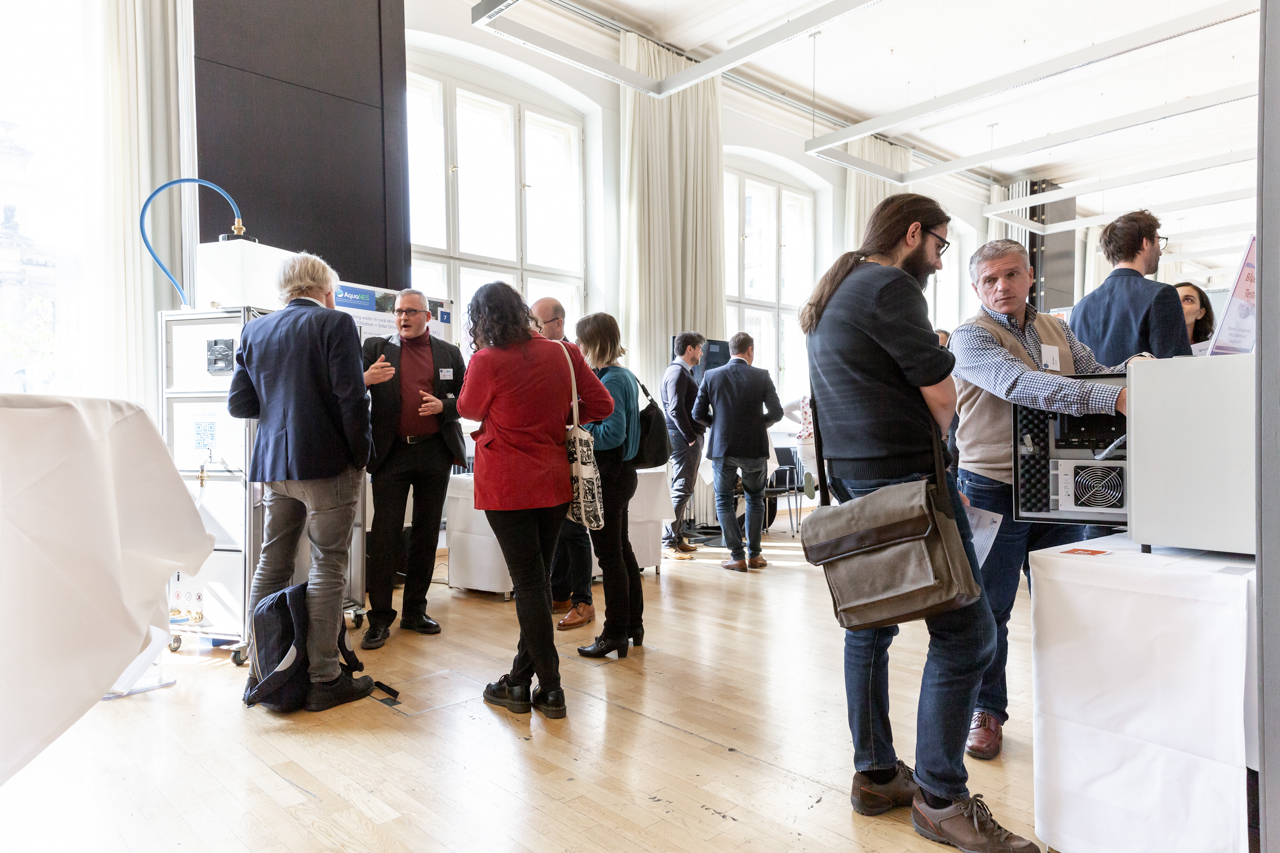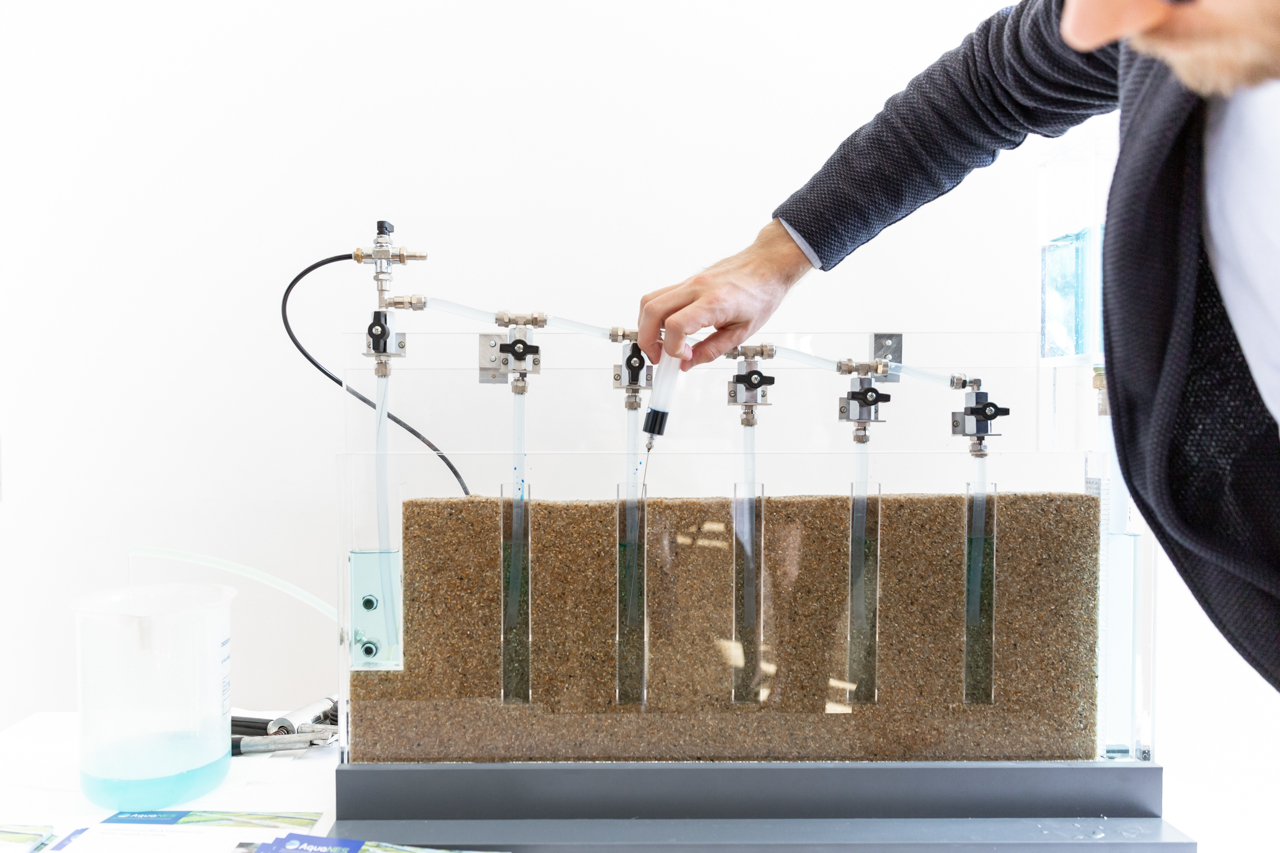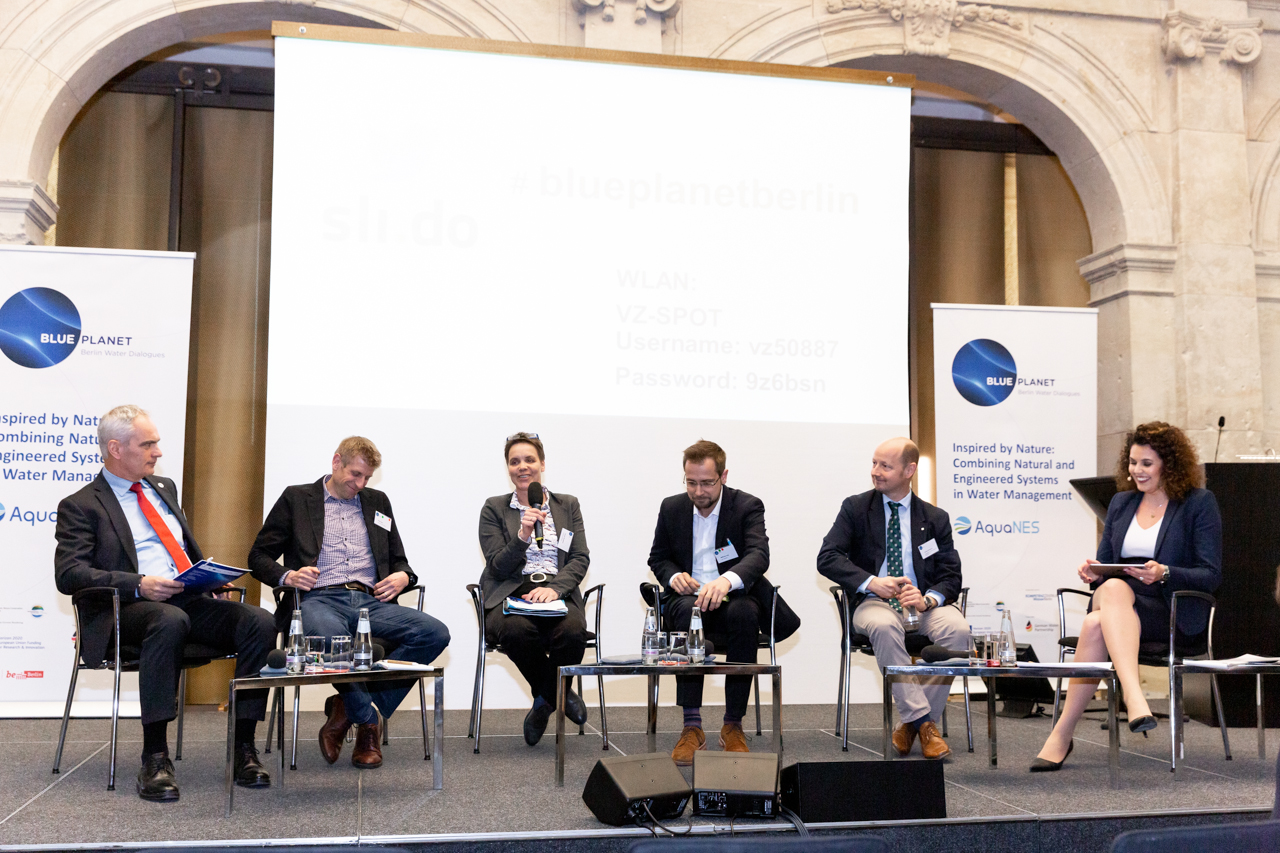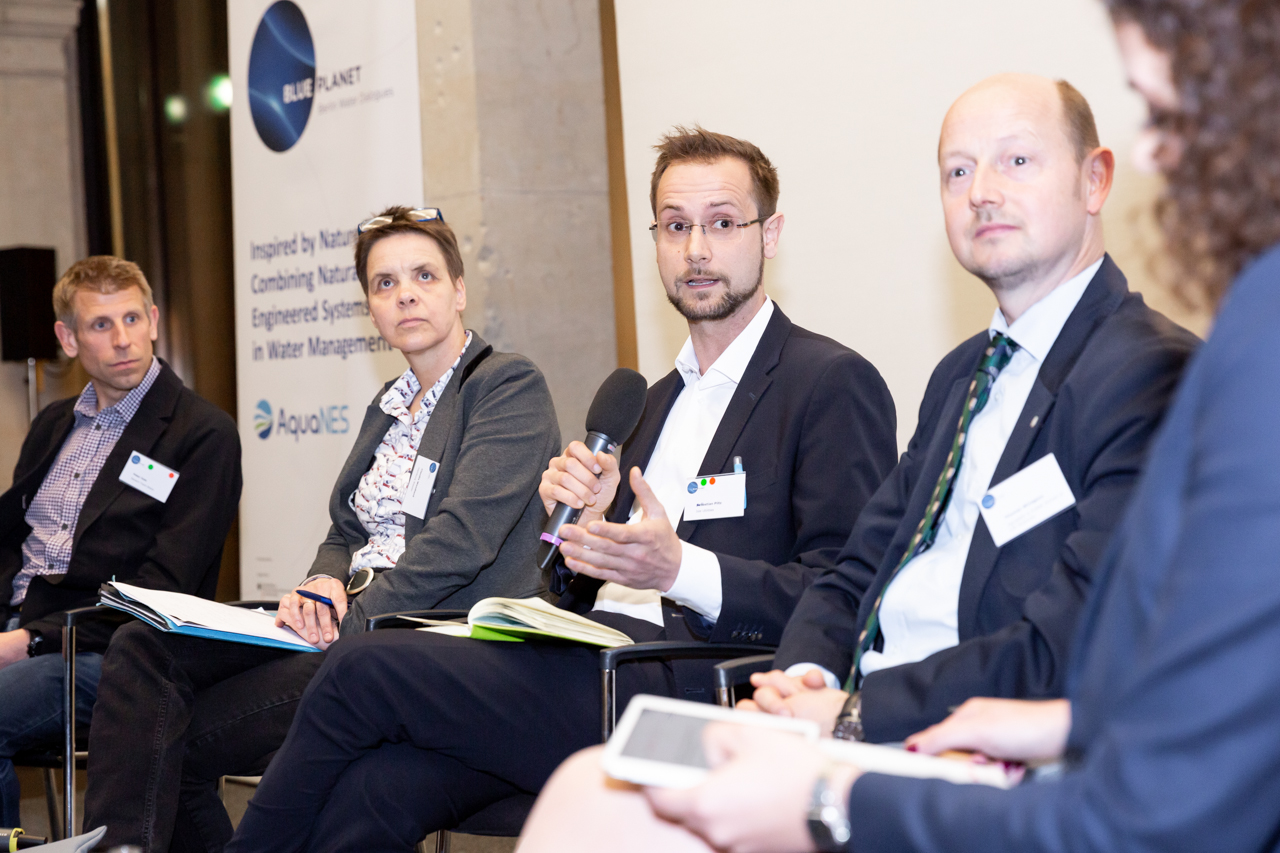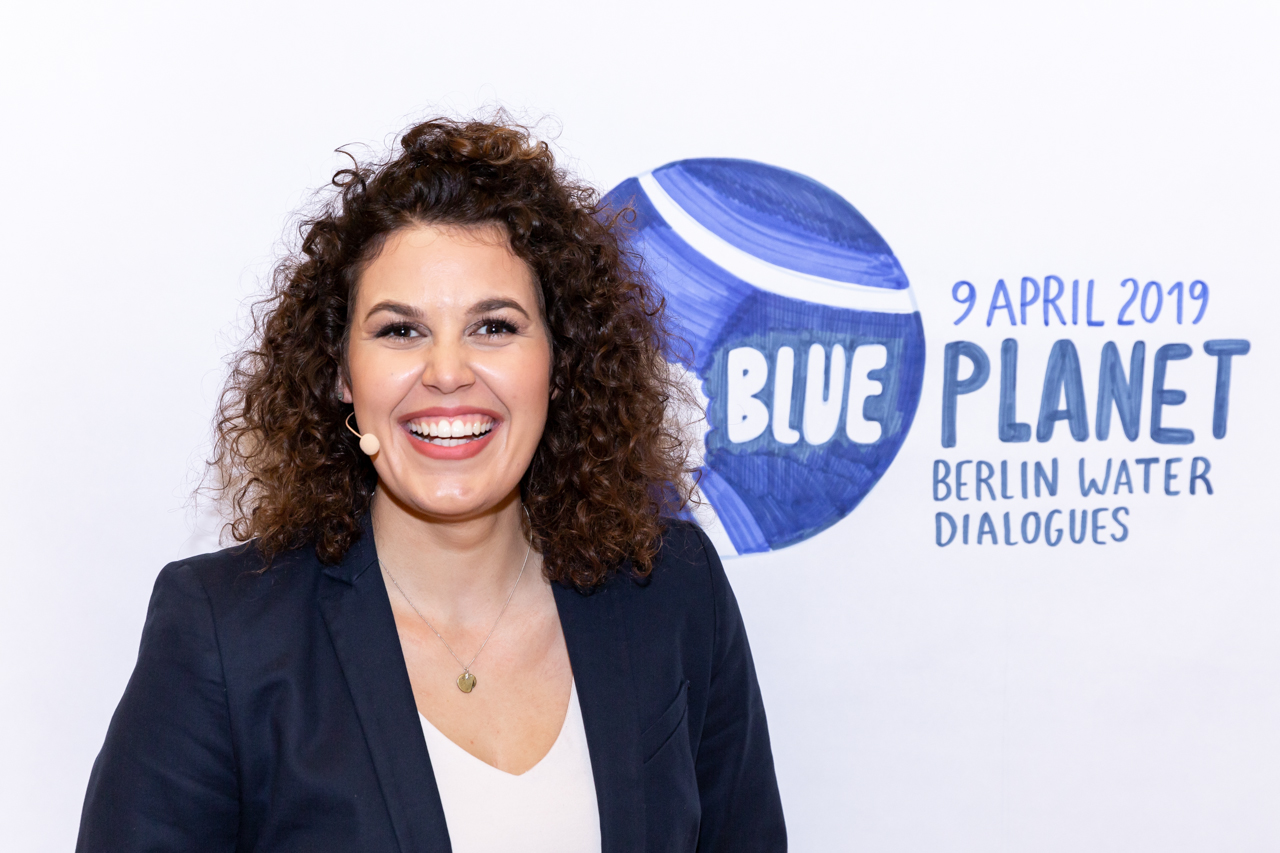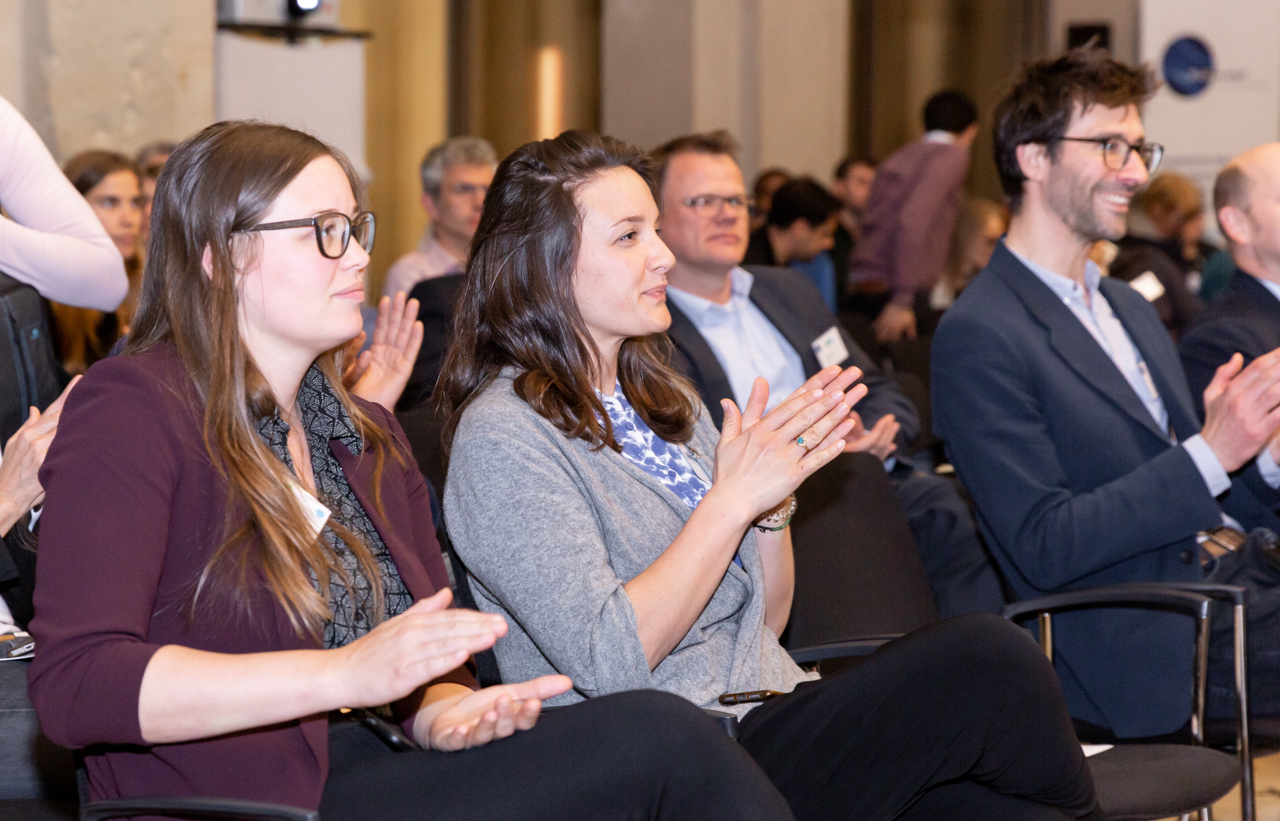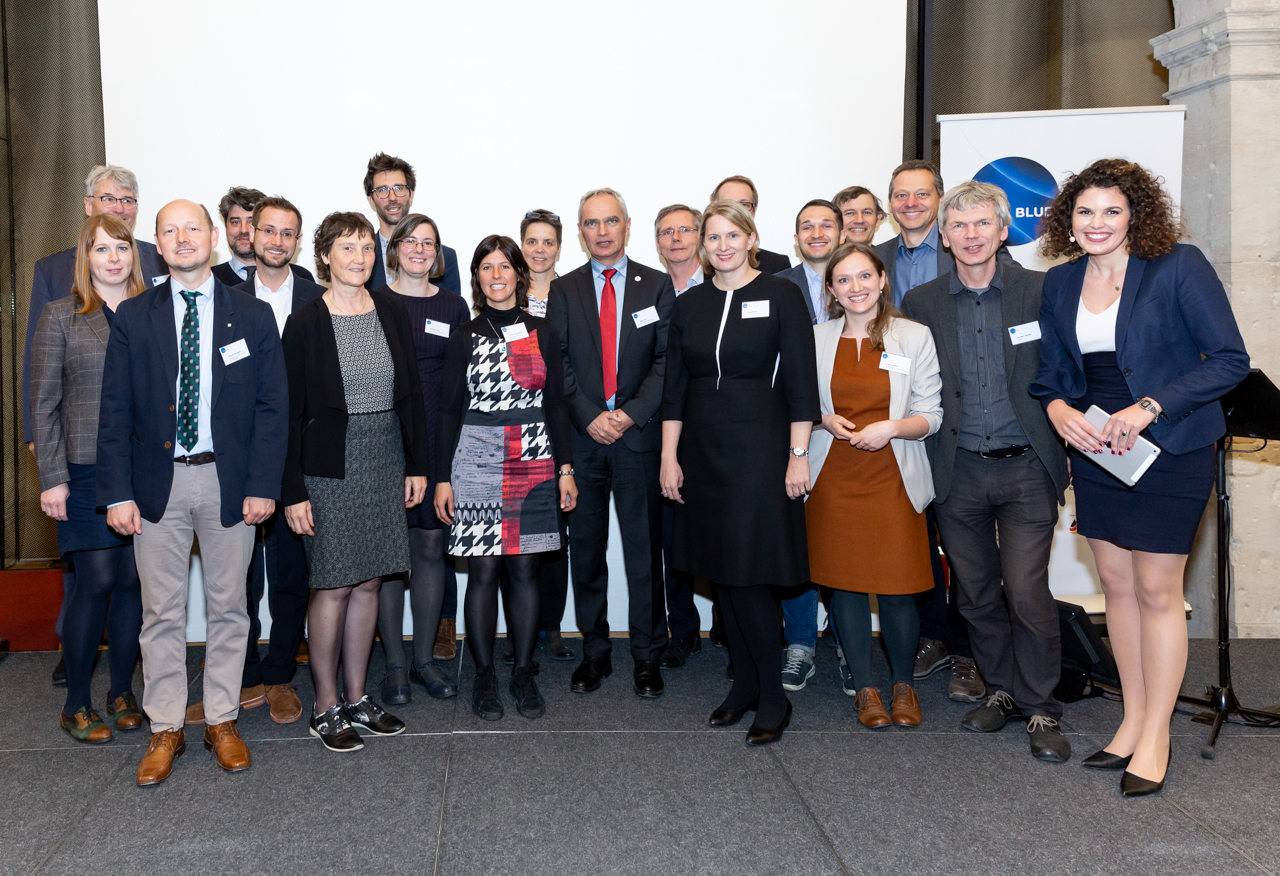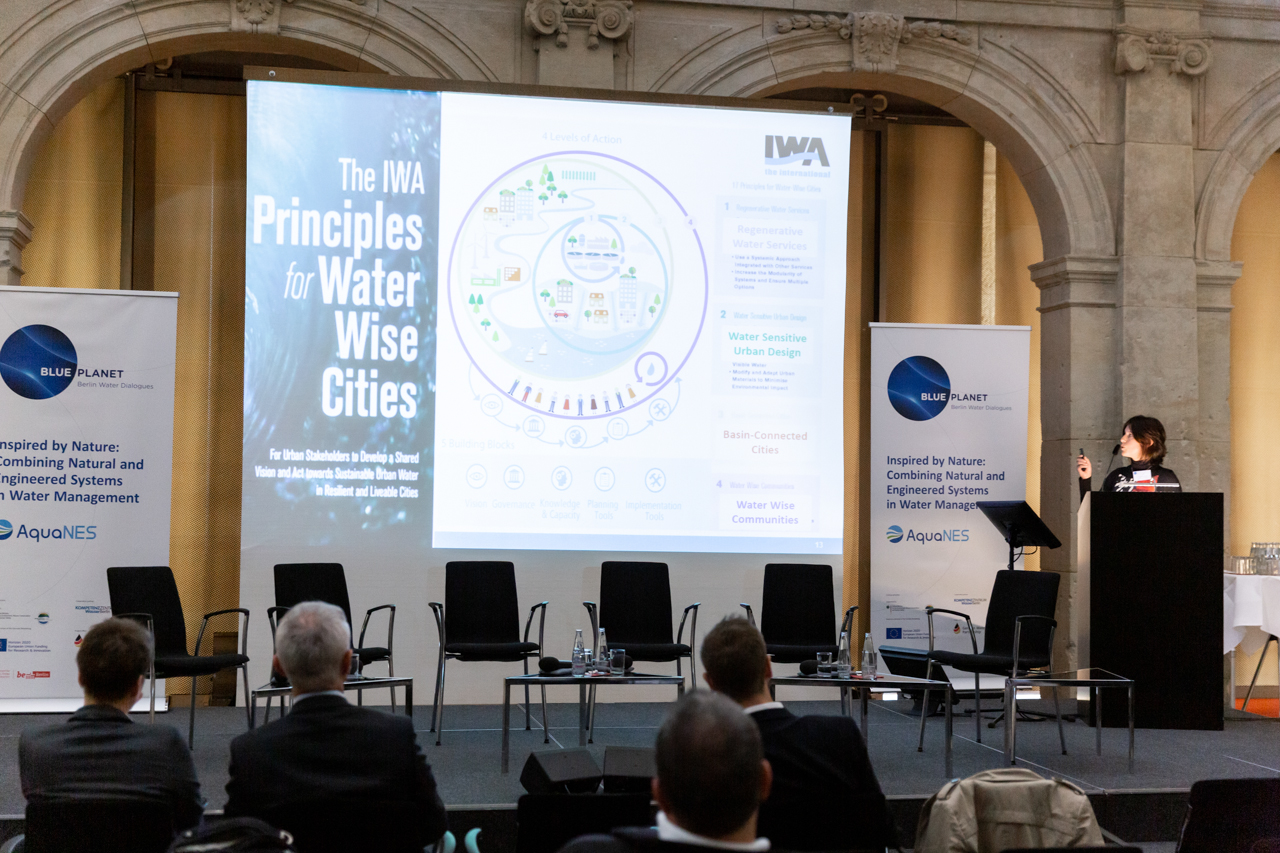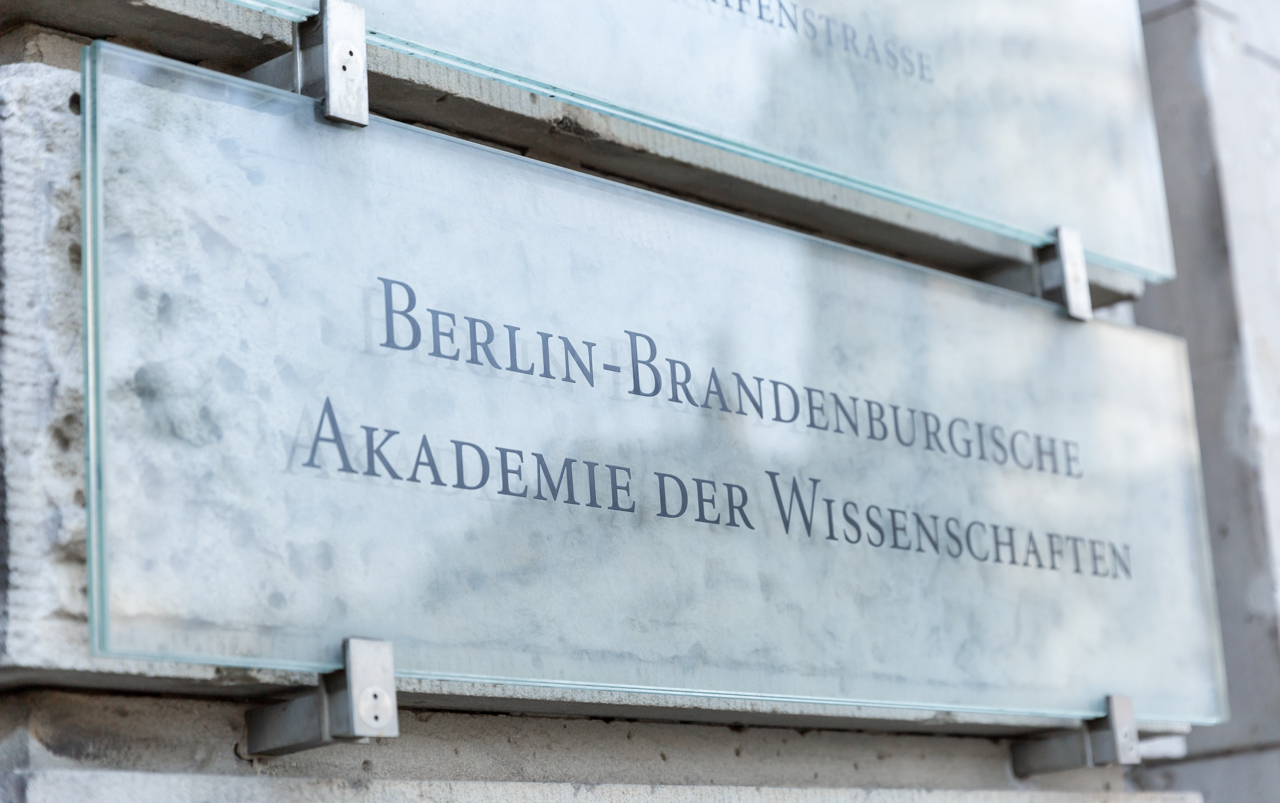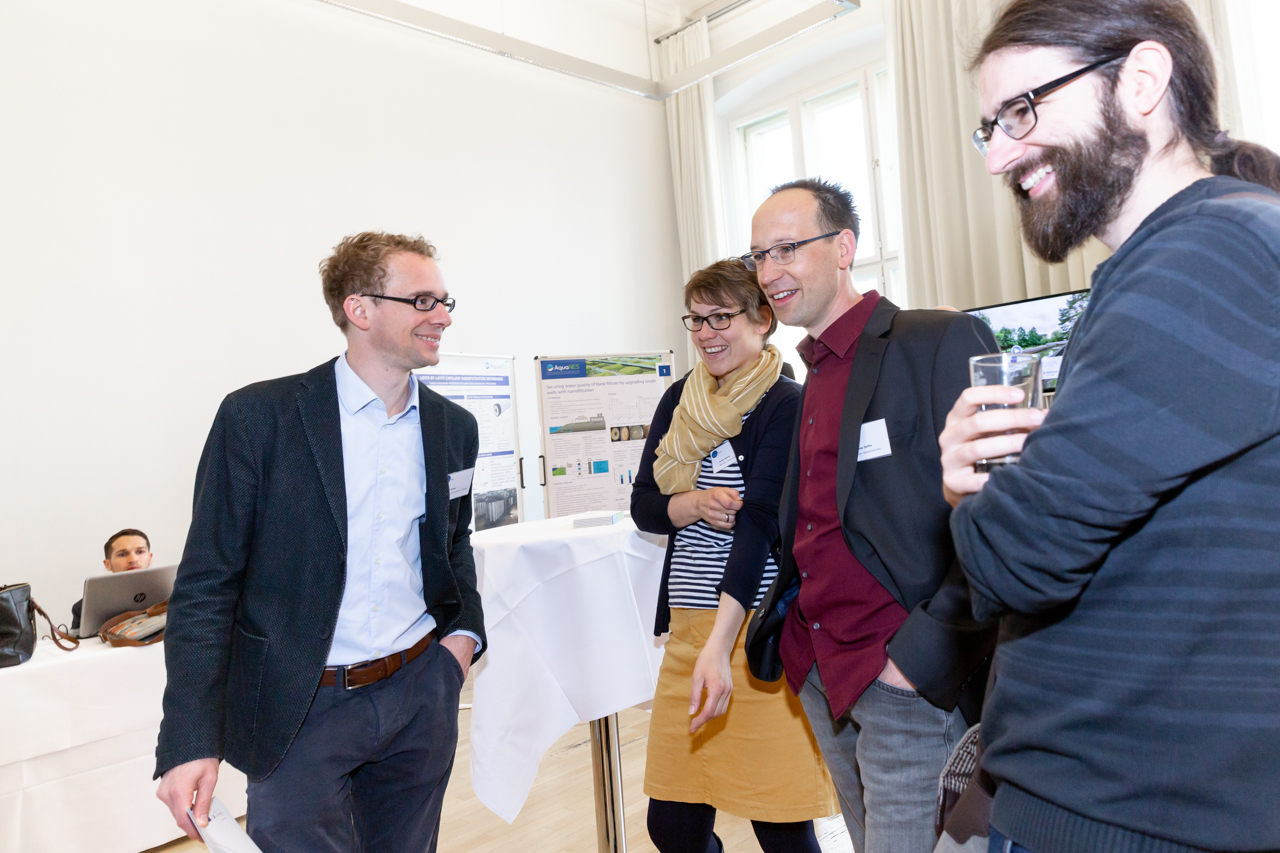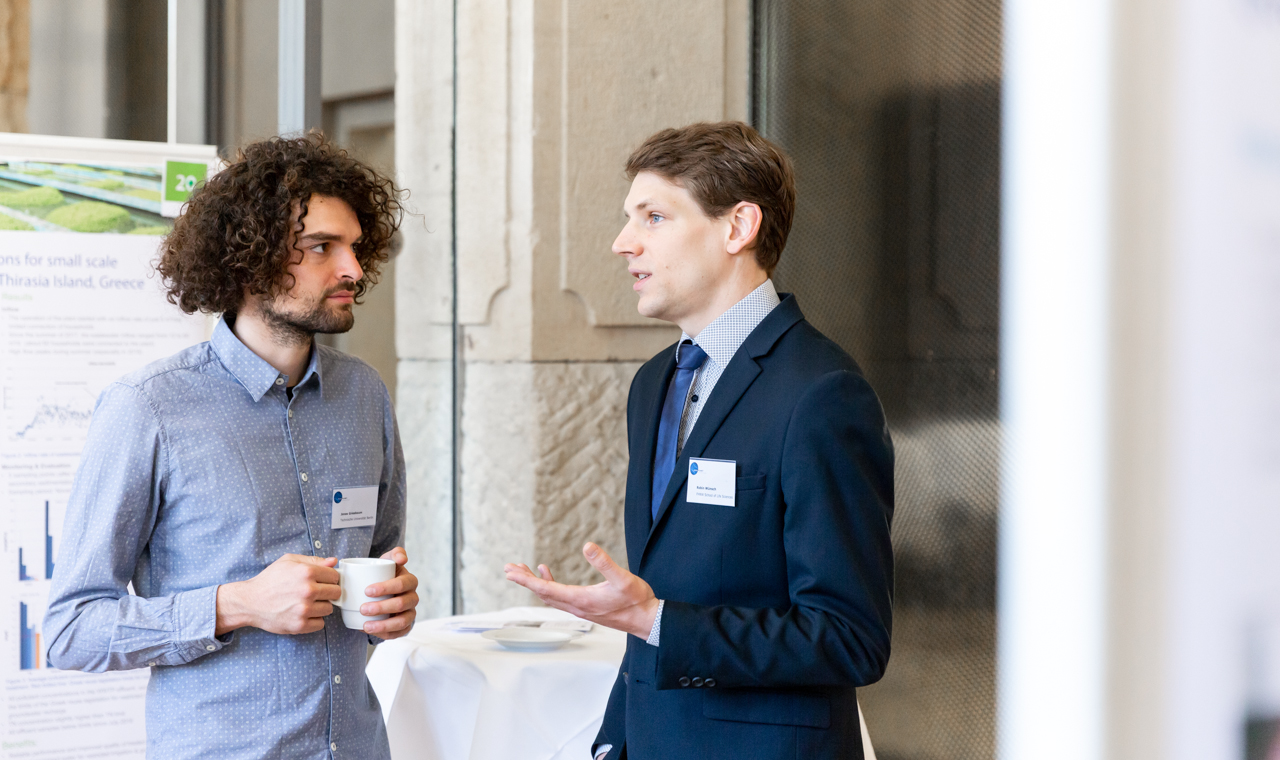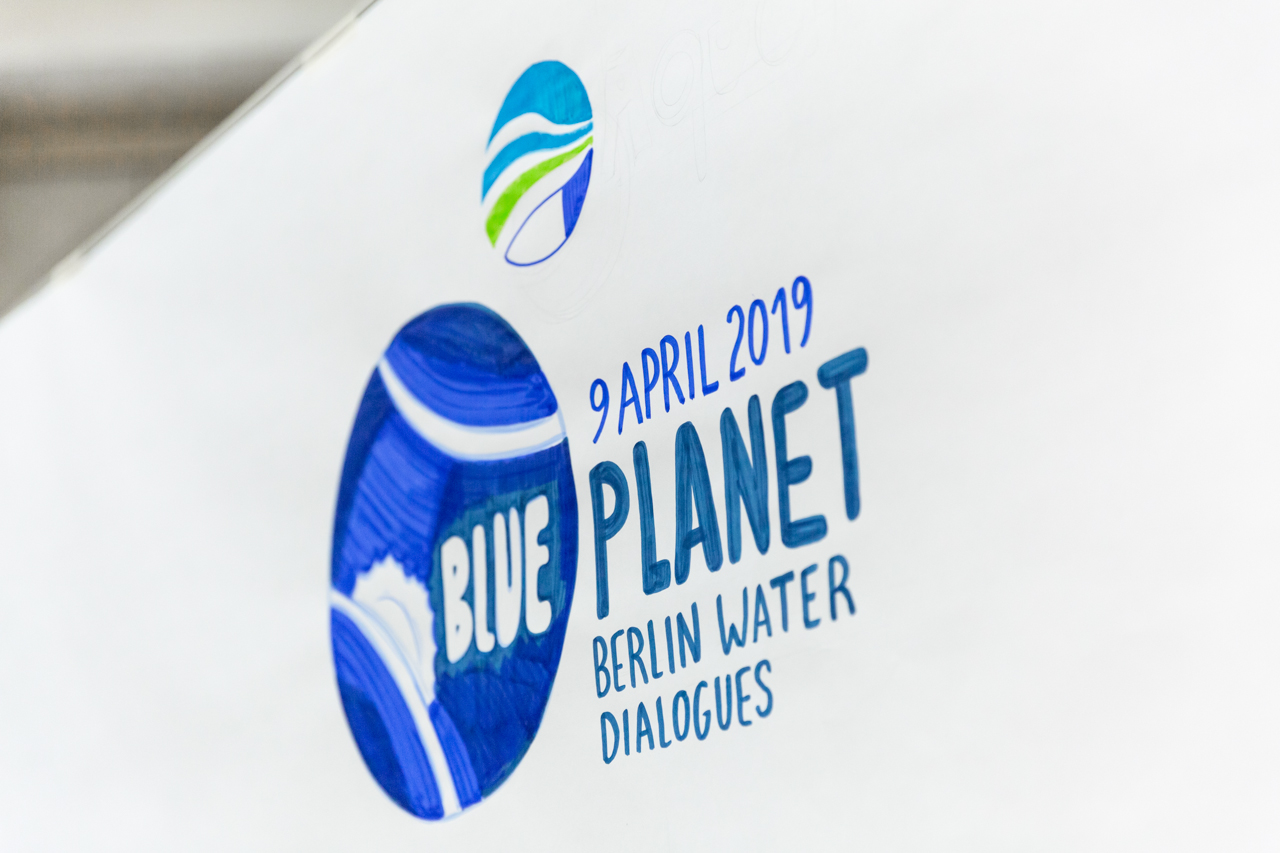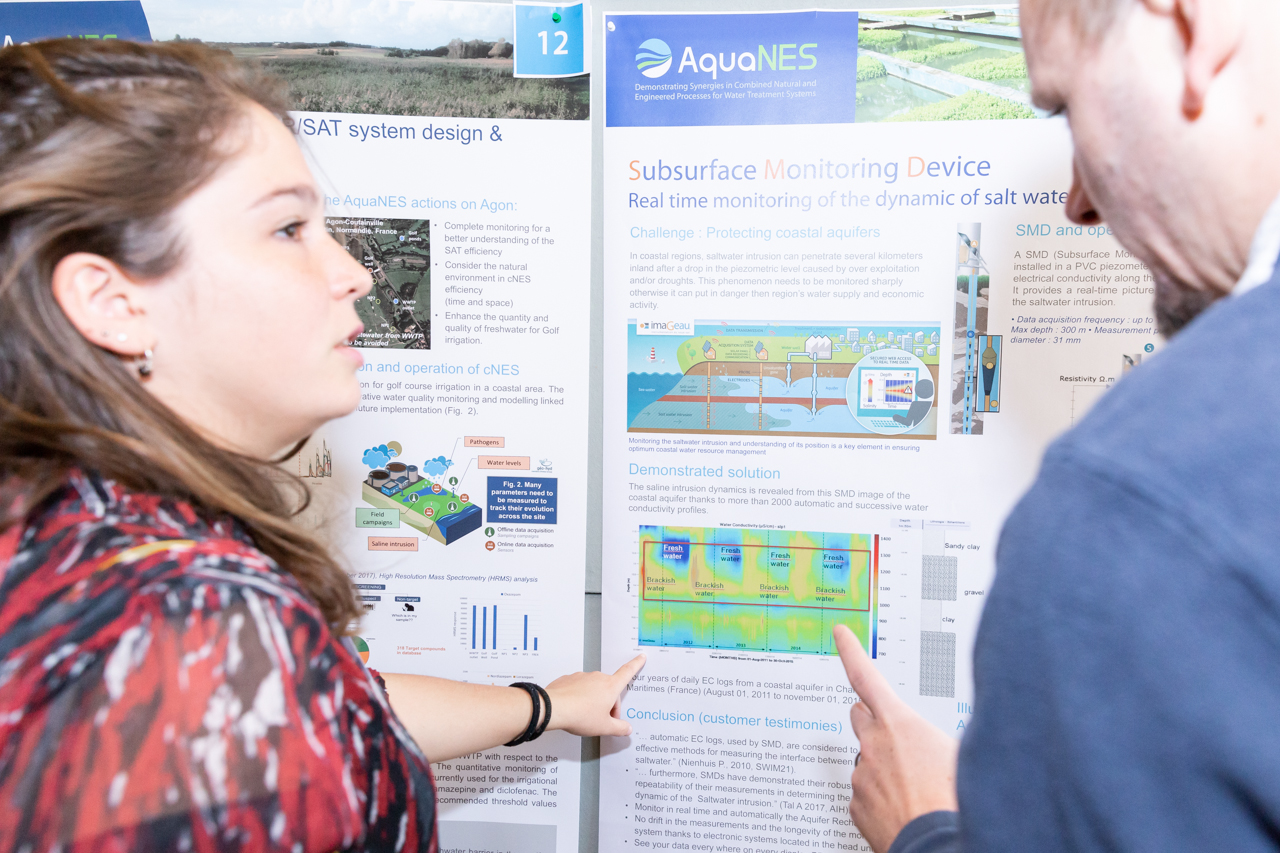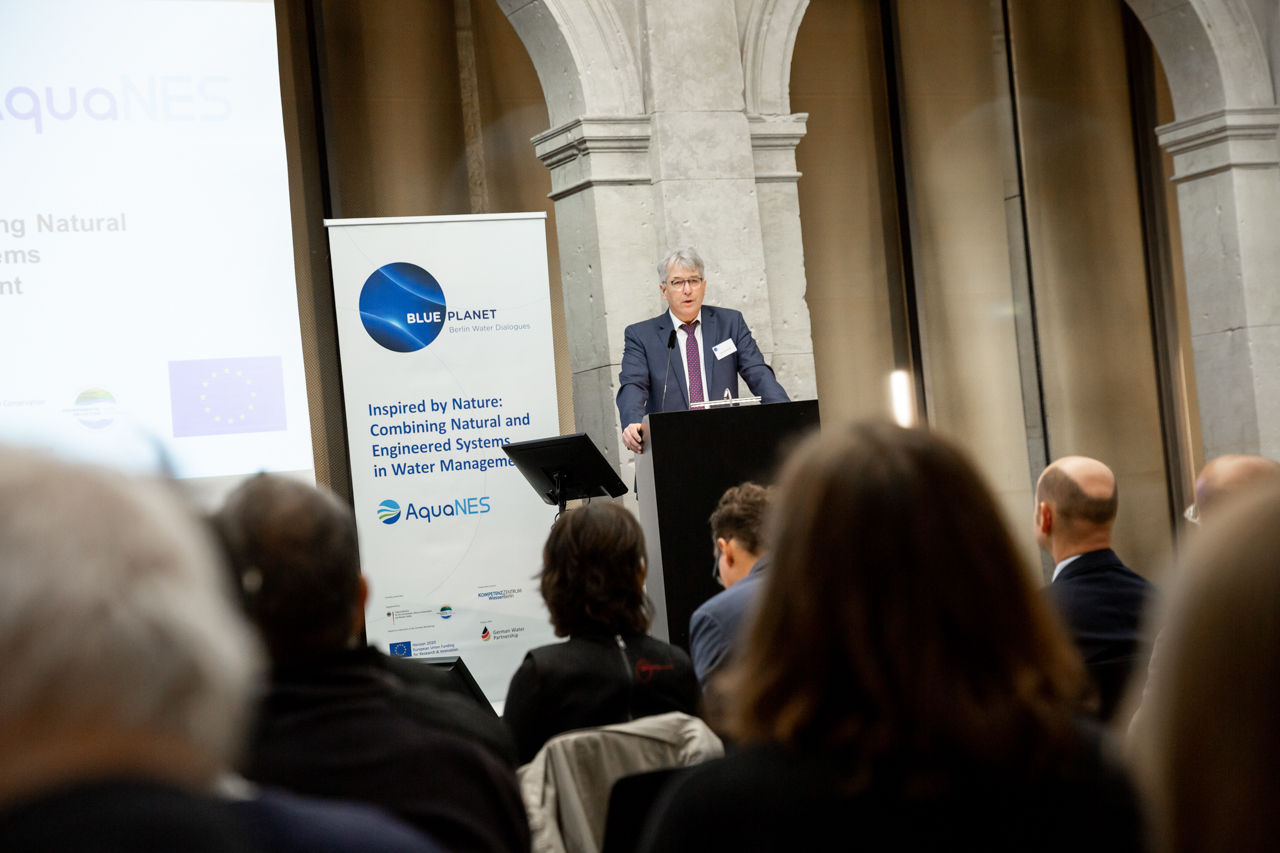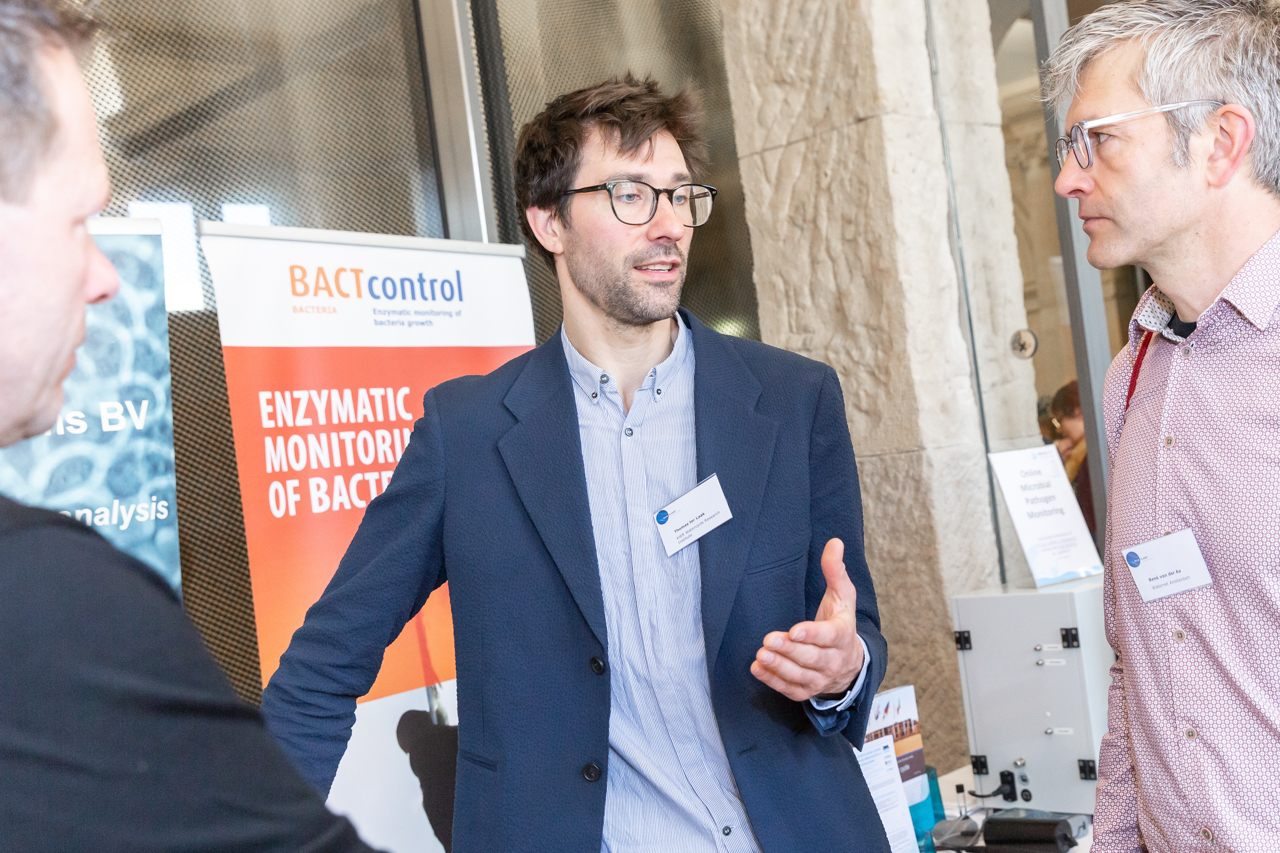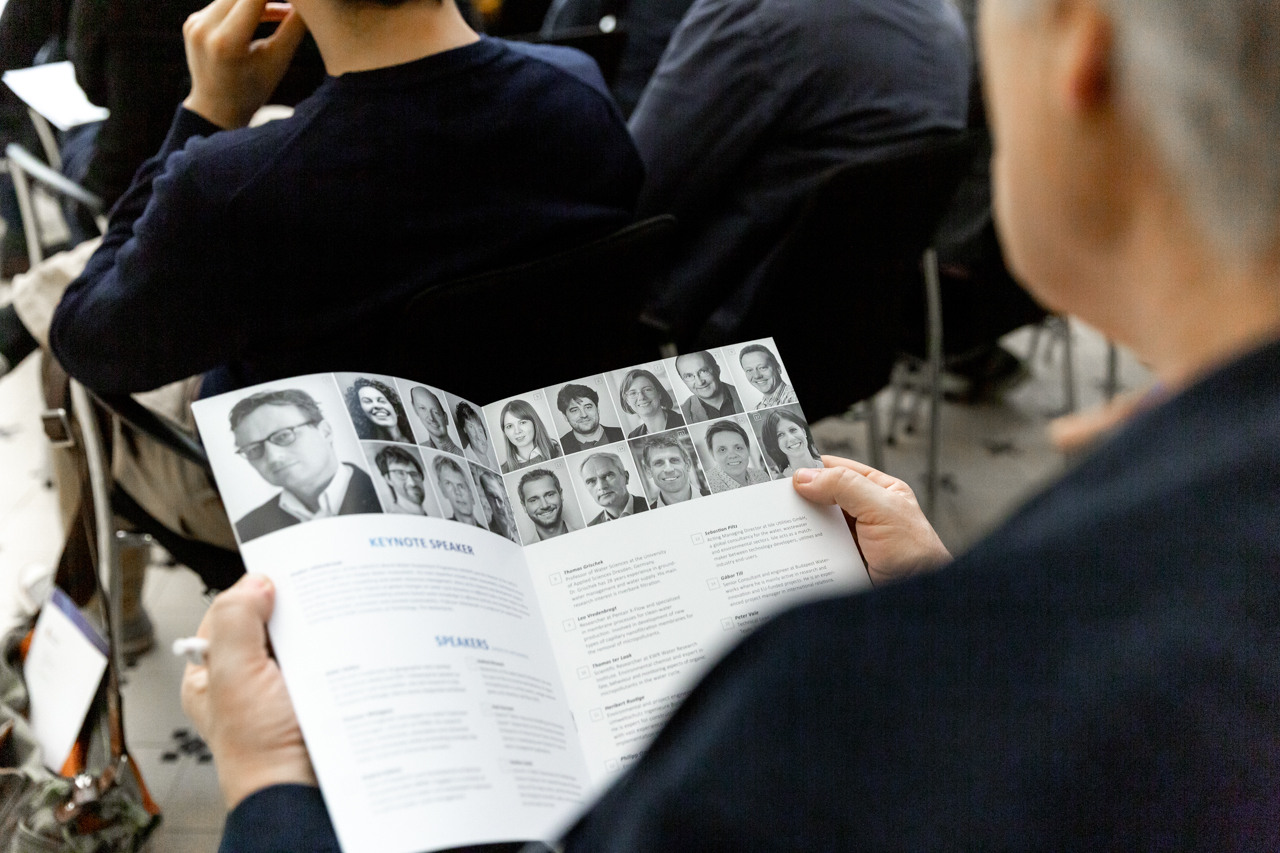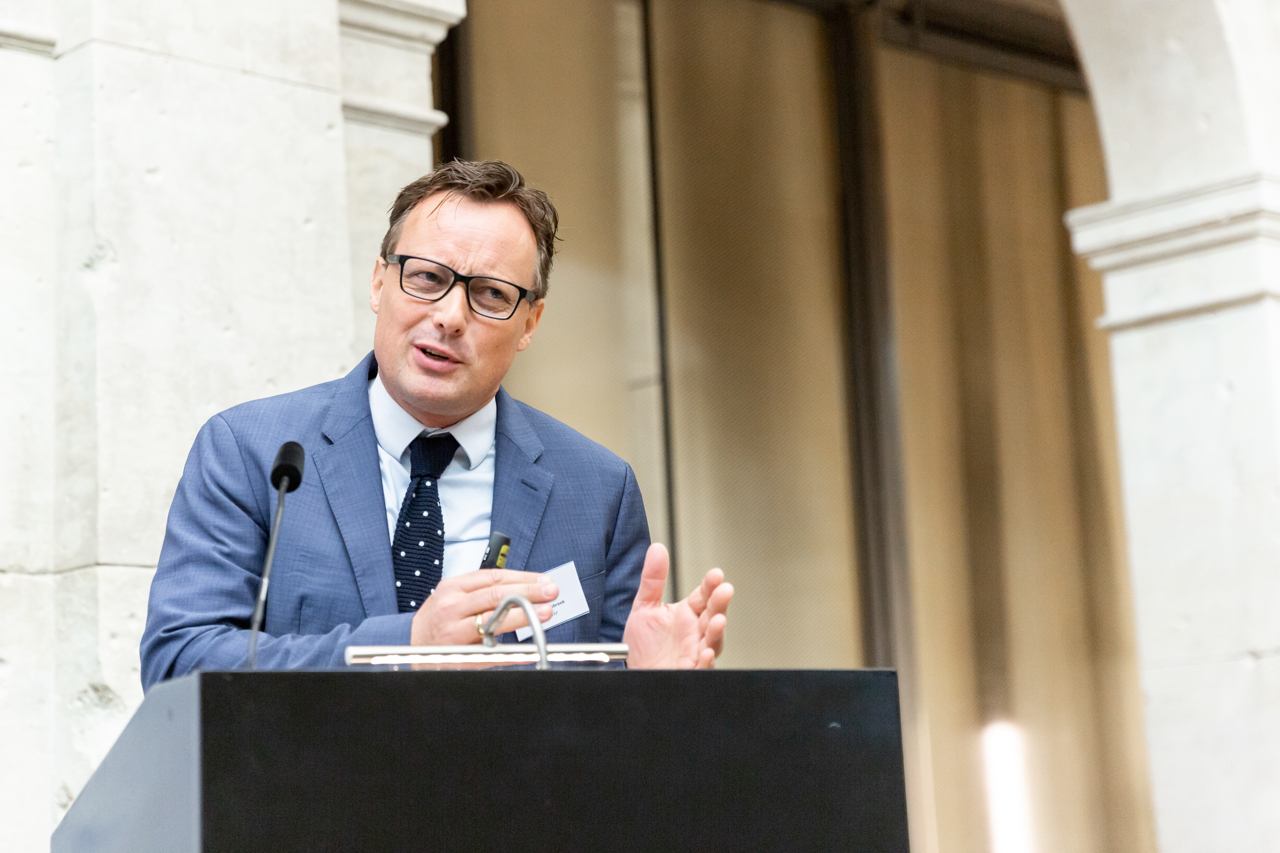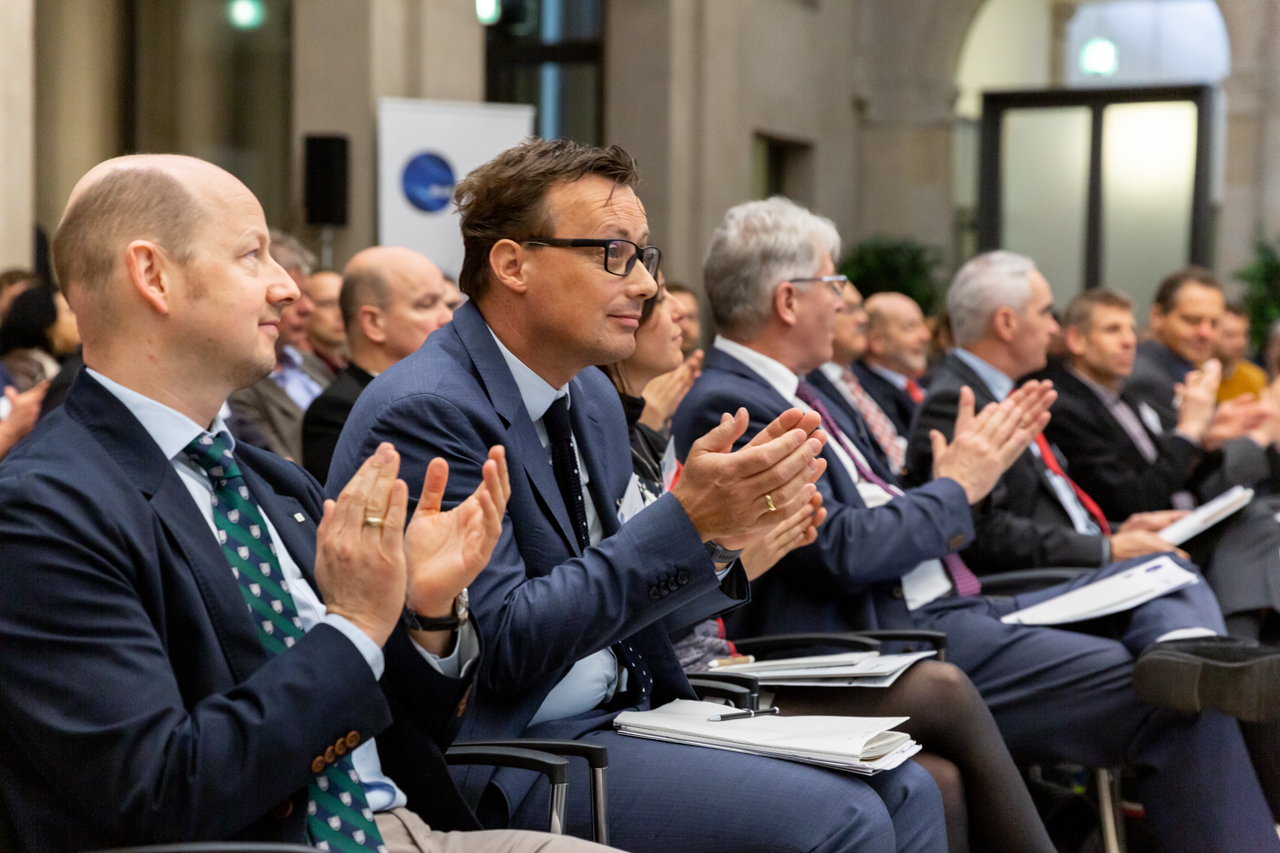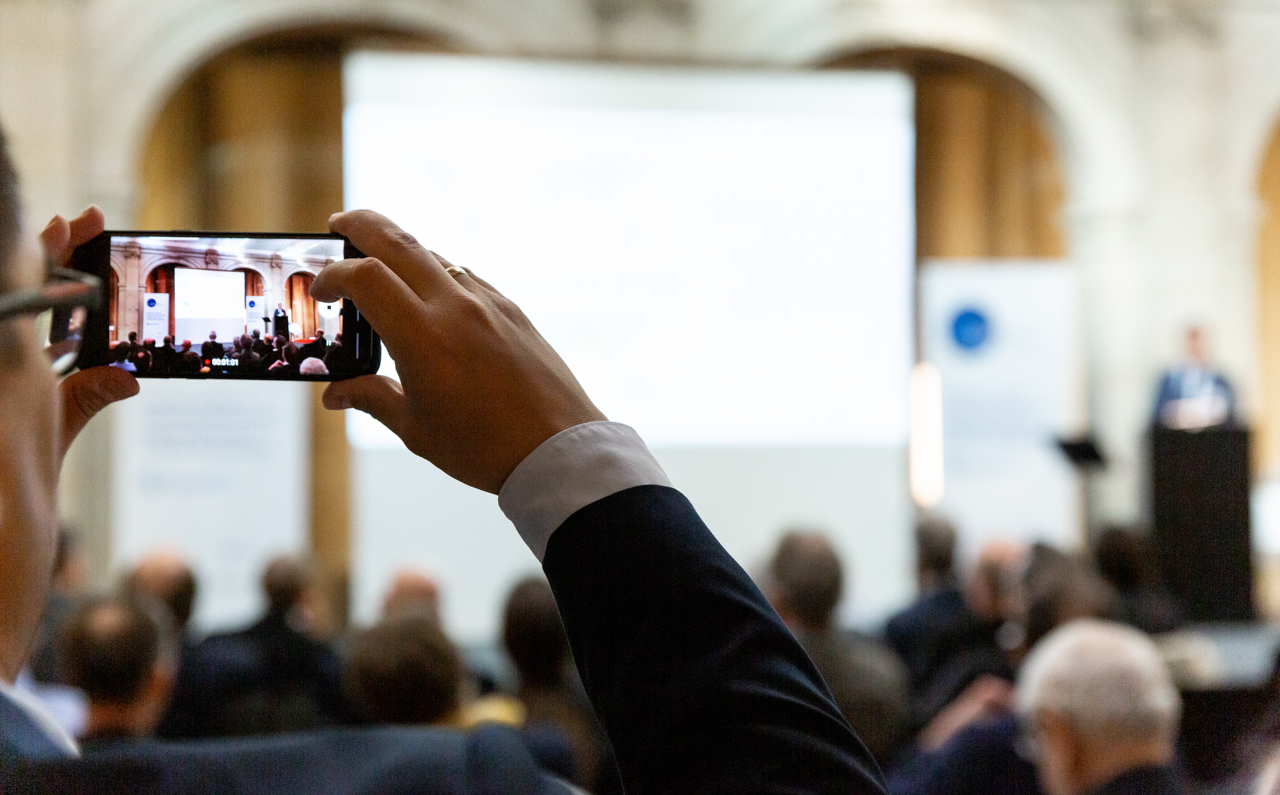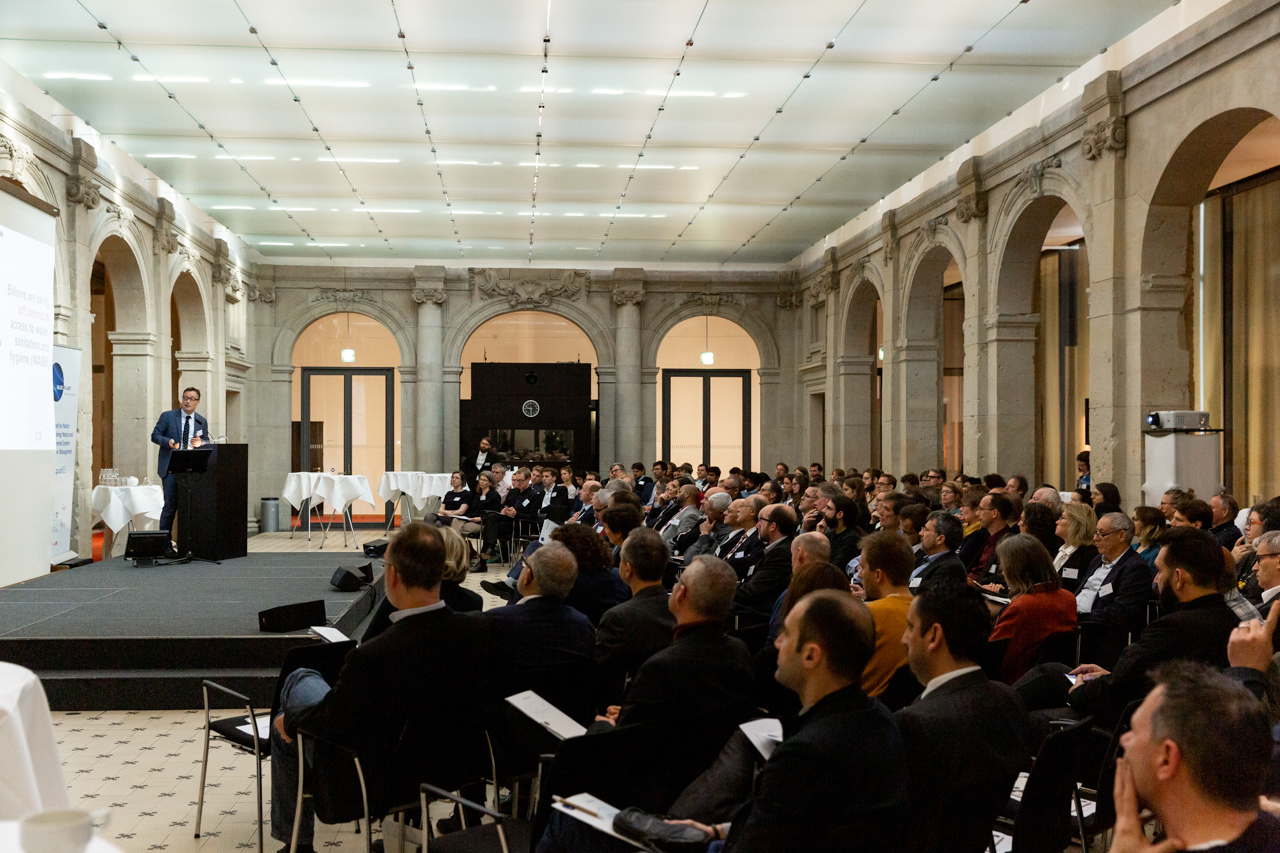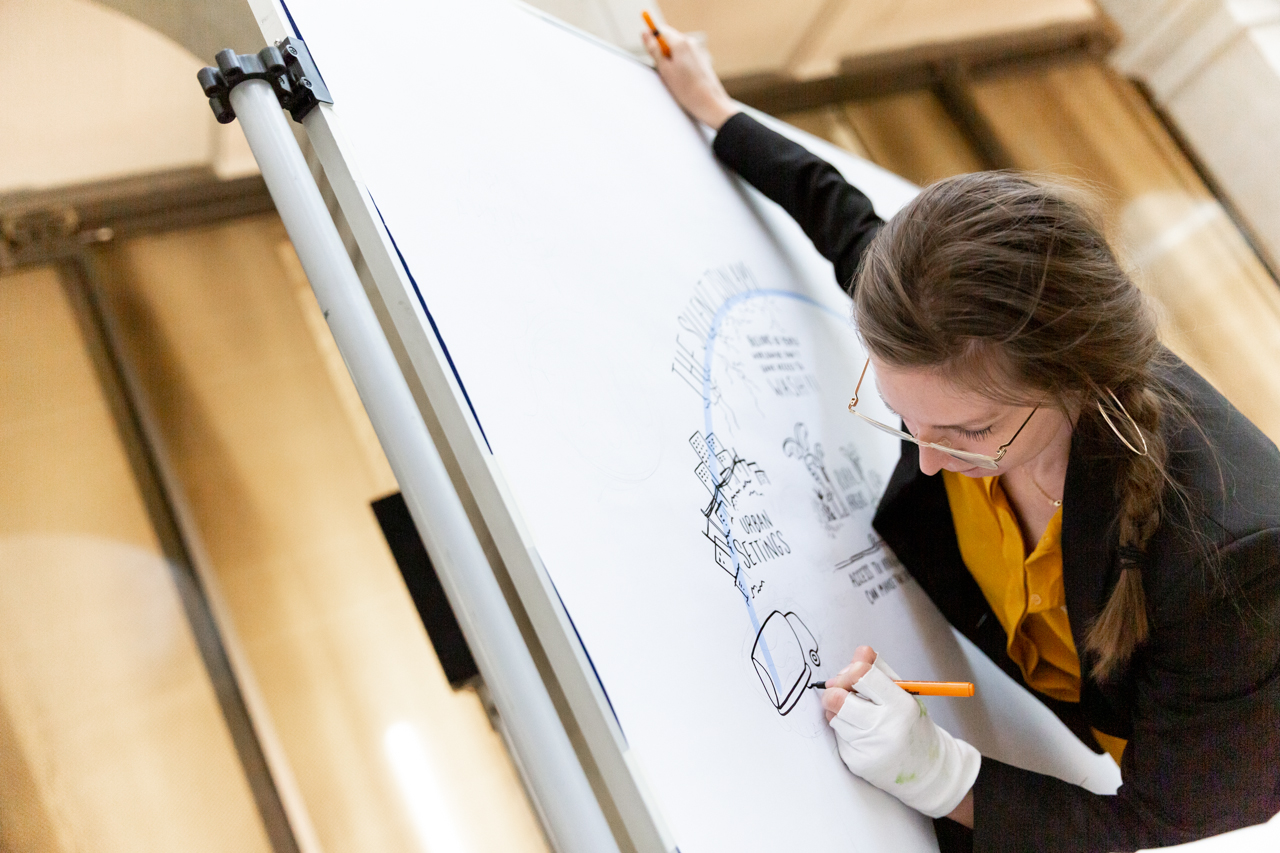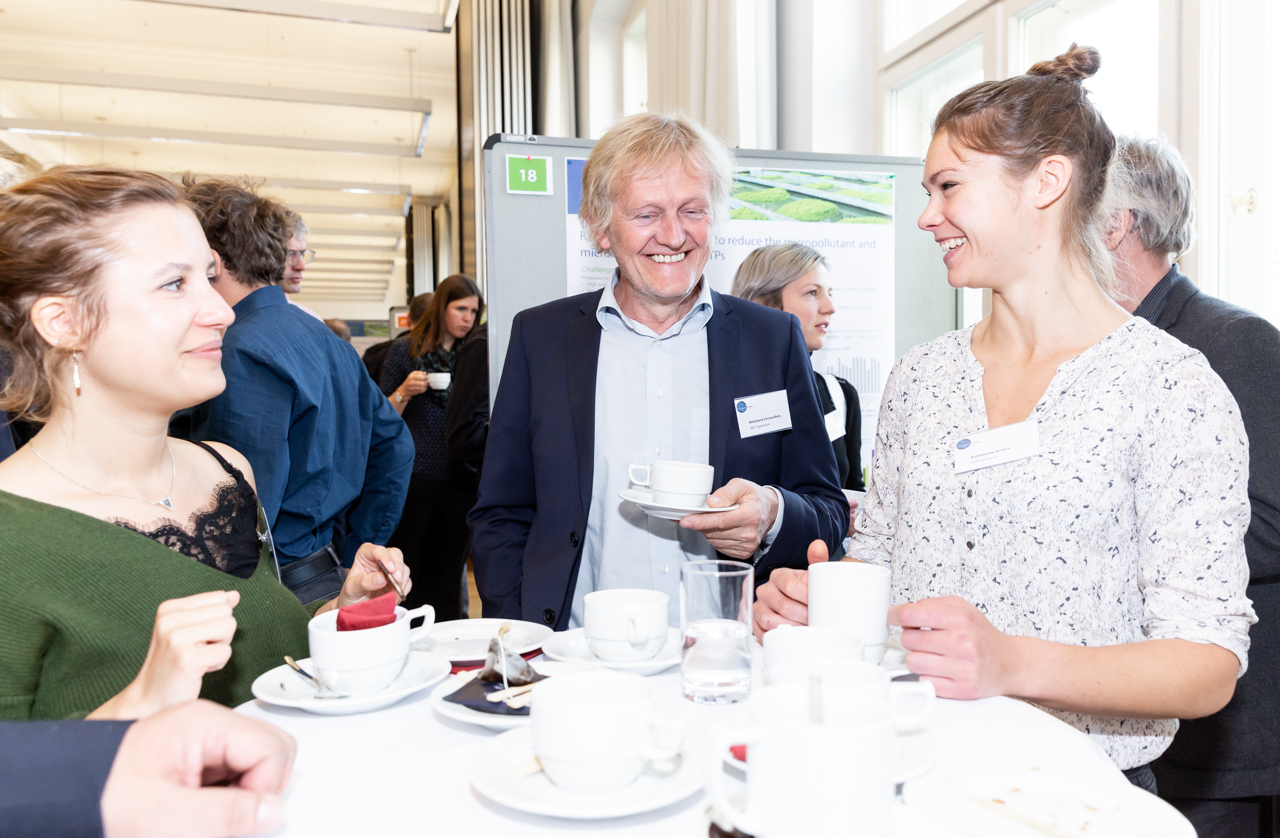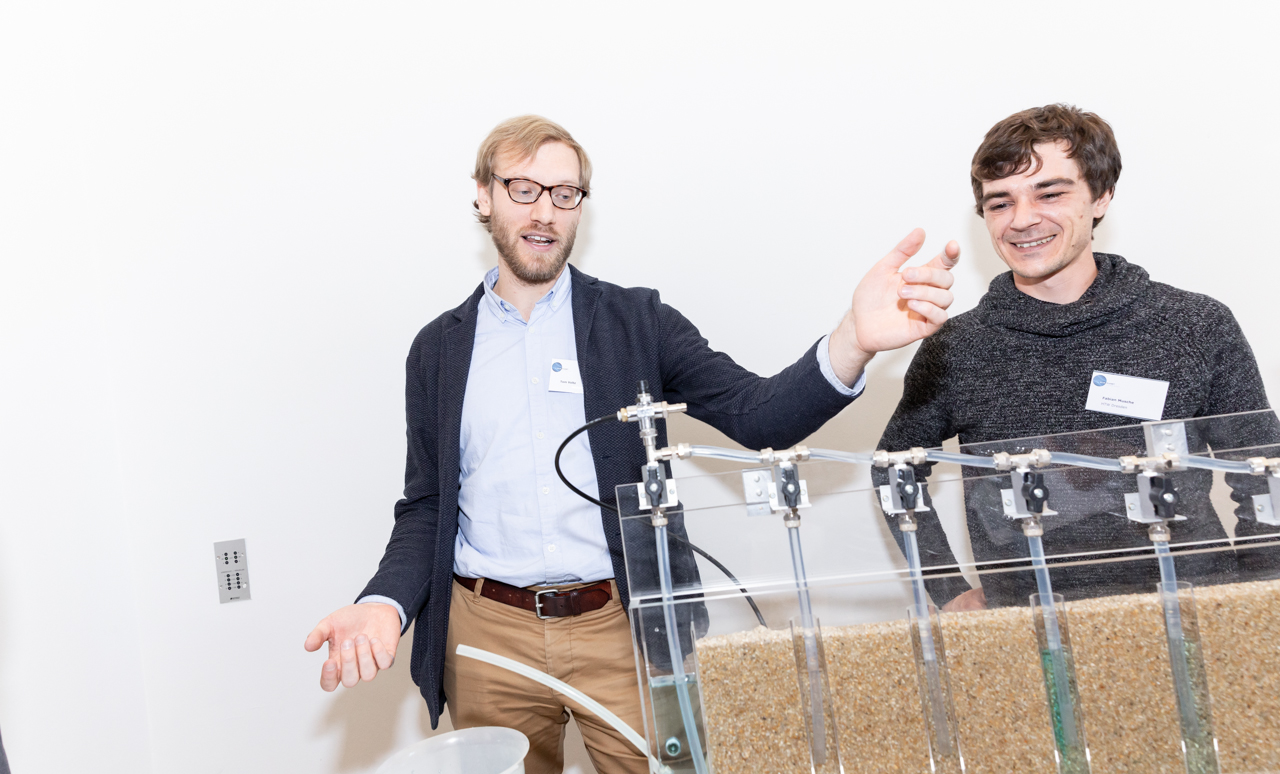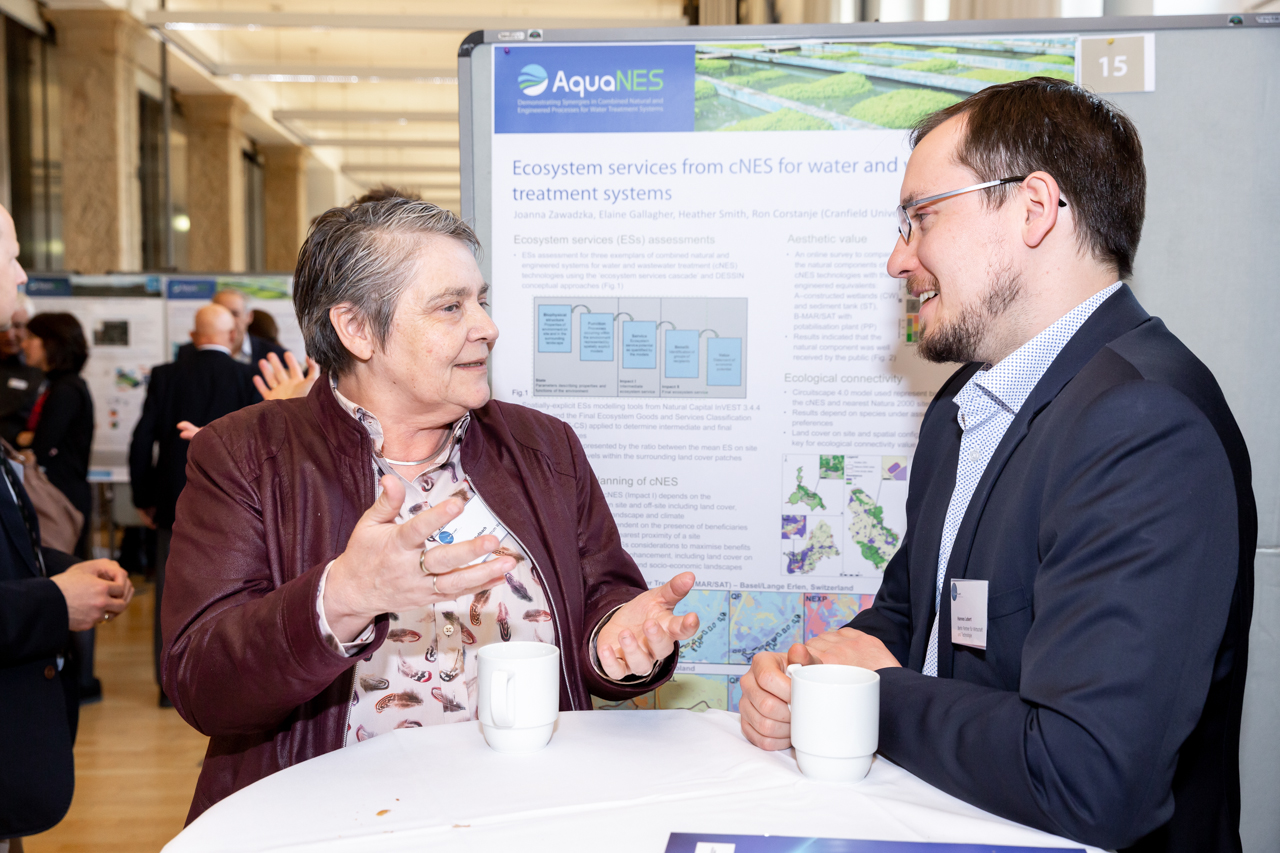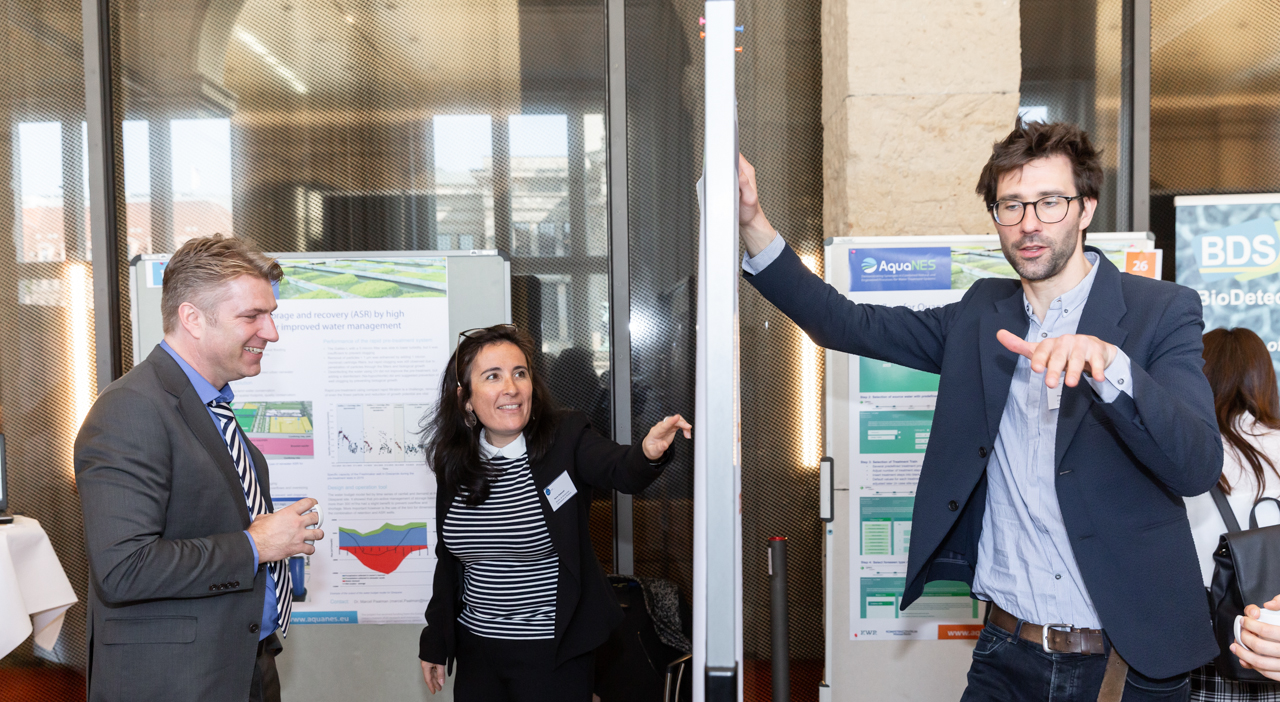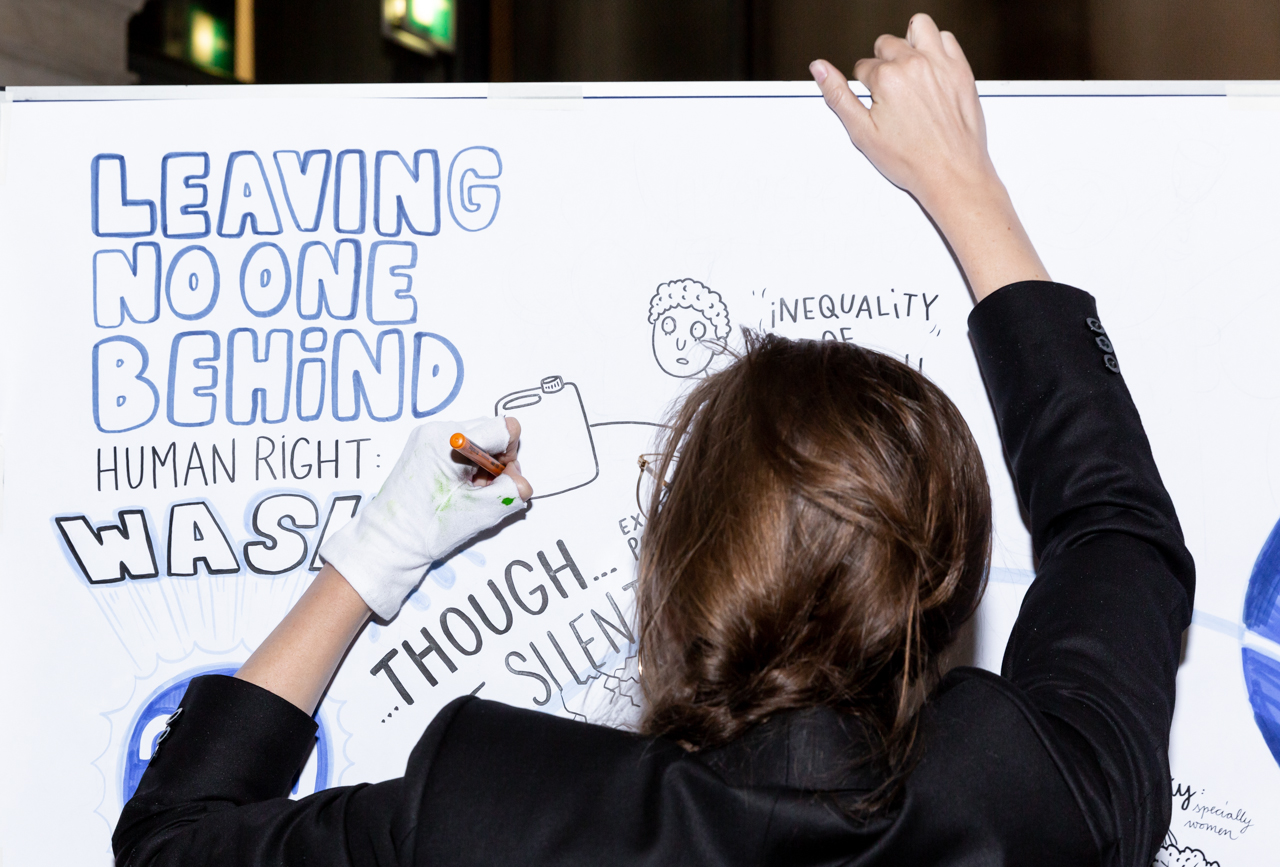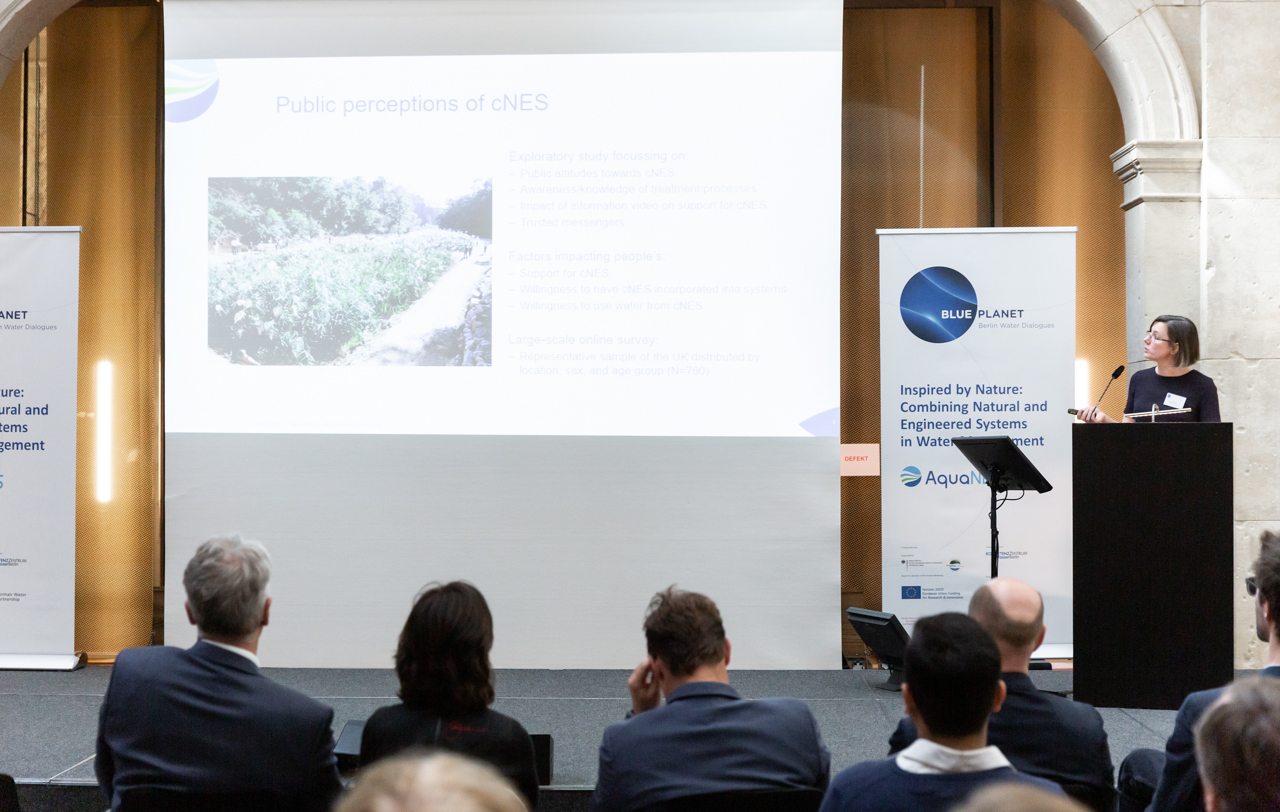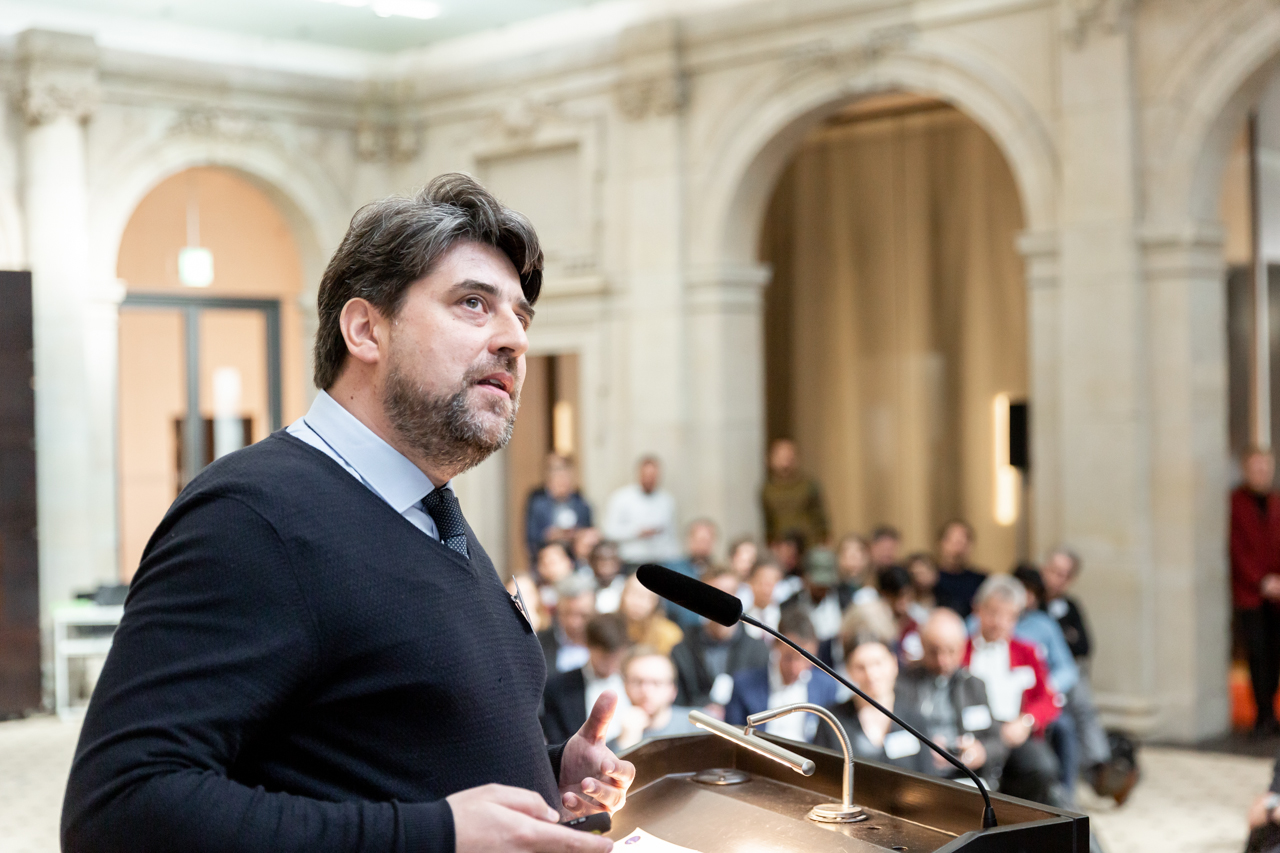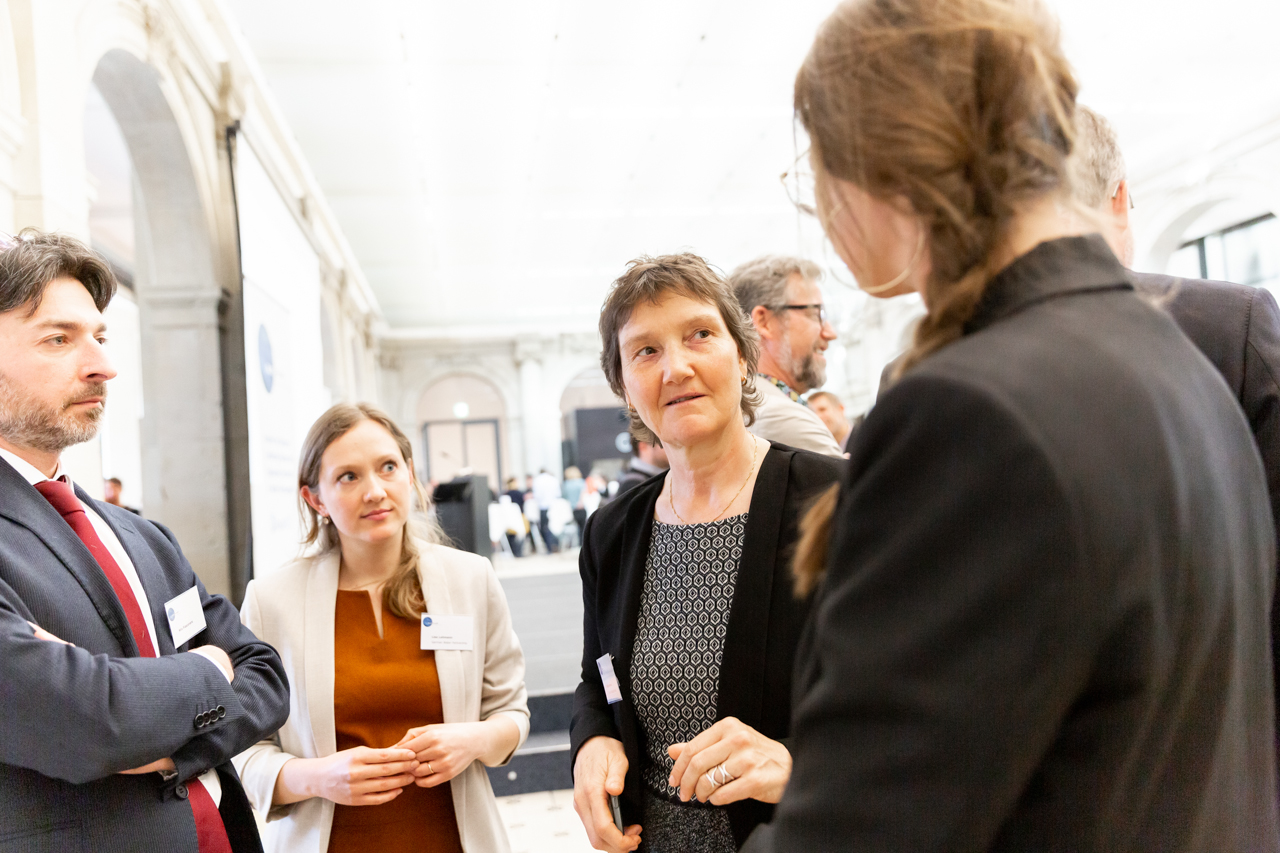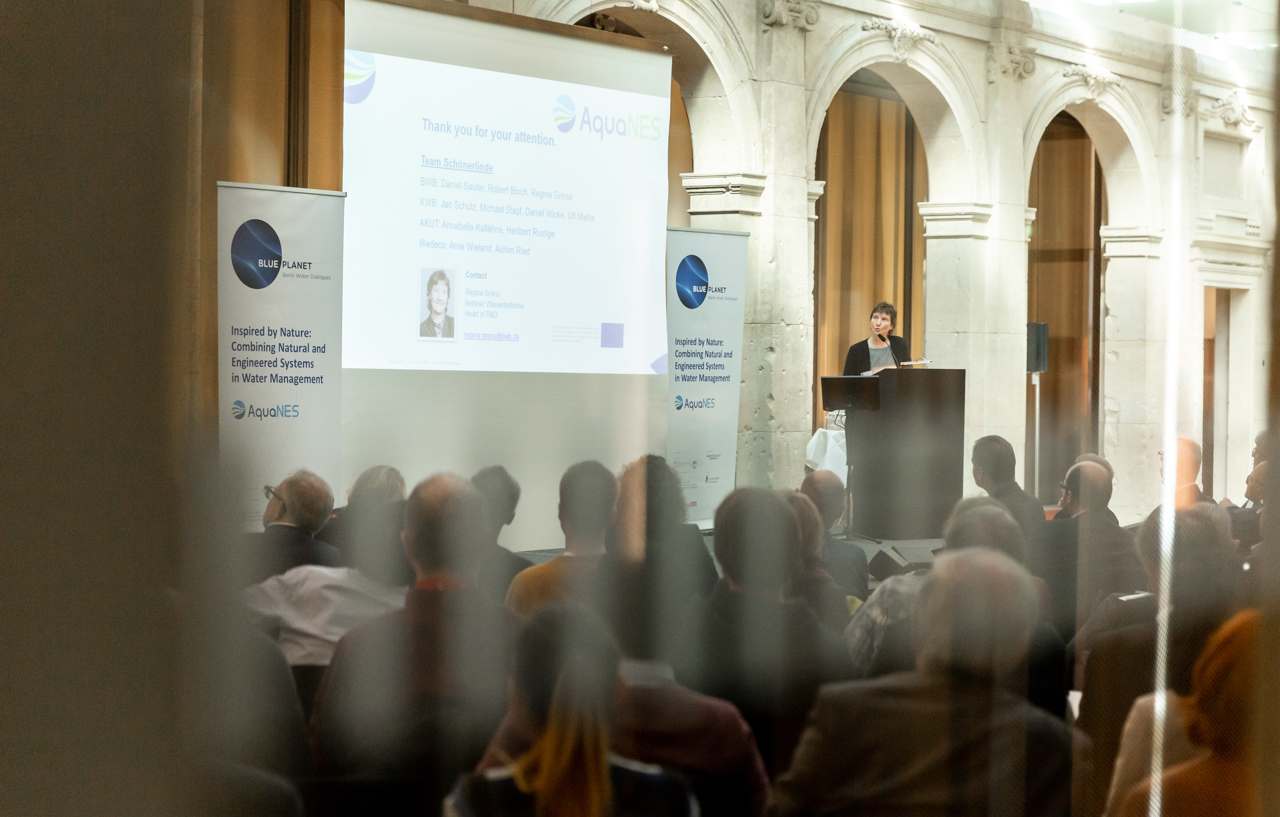Water management requires intensive cooperation across sectors and disciplines. Yet, bringing oneself to thinking beyond the silo is a hard and continuous process; especially as the natural and economic environments become more and more unpredictable. BLUE PLANET Berlin Water Dialogues is the leading platform in Germany to bridge the gap between research and practice, across sectors. This year it partners with the EU-funded Horizon 2020 project AquaNES. The project demonstrated the feasibility and effectiveness of combined natural and engineered systems for water treatment systems (cNES).
During the BLUE PLANET Berlin Water Dialogues conference, AquaNES presents the innovations that emerged from the collaboration of utilities, industry and academia. A panel discussion with representatives from water utilities and the private sector beyond the AquaNES network allow for a multi-faceted exchange on water management challenges, including those that crystallized from past BLUE PLANET Berlin Water Dialogues. Representatives from the private and public sectors, academia, non-governmental organizations, and other interested stakeholders come together for this unique conference format.
Presentations of the Speakers:
Ozonation combined with natural filtration processes – water quality gains
Regina Gnirss, Berliner Wasserbetriebe
Flexible use of modified retention soil filters to treat wastewater treatment plant effluent and
combined sewer overflow
Andrea Brunsch, Erftverband
Tailored ICT tool for optimised operation of a managed aquifer recharge site
Axel Aurouet, Antea Group
Realising combined natural engineered systems (cNES) – Insights from public perceptions and
governance
Heather Smith, Cranfield University
Inspirational Lecture
Combining natural and engineered systems for Water-wise Cities
Corinne Trommsdorff, Head of the IWA Water-Wise Cities Initiative
https://blueplanetberlin.de/wp-content/uploads/2019/05/Wintgens.pdf

